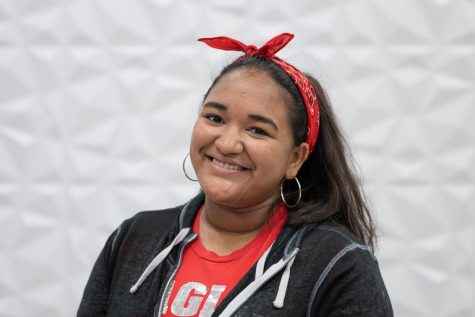A Retweet a Day Keeps the Fires Away
False activism fails to bring tangible change to societal issues
February 3, 2020

When choosing how to act, young activists must think about how effective their modes of activism really are.
If you could change the world with a click, would you?
It takes 34 muscles to move your thumb to retweet a tweet on Twitter. Thirty-four muscles are used to post an Instagram post on your story. It takes 34 muscles to type out a heartfelt message reacting to a recent event. But while all of these actions require minimal effort, it’s going to take more to make a change.

Many of today’s youth consider themselves to be avid activists bringing about world change. The Never Again movement, for example, sprouted after the Marjory Stoneman Douglas shooting as students from the school were able to rise up and tackle U.S. gun laws. Students from schools all across the country, including Liberty, were inspired by the Florida activists and started protests in their own schools, staging walkouts as a peaceful demonstration to end gun violence in America.
Since the Parkland shooting, the United States and the rest of the world has had no rest from devastating events. Most recently has been the Australia wildfires, bringing flames and widespread damage to the country since July.
In a new type of activism initiated by the younger generation, catalysts for change have popped up in the ubiquitous network that brings users of all ages together. Aside from slime videos, angry political debates, and vacation pictures, social media has been home to a new form of activism.
Social media activism comes in waves, typically starting off with a hashtag. Surrounding the Australia wildfires, #prayforaustralia has been circulating around platforms such as Twitter and Instagram trying to rally awareness for the effect of the fires on the everyday lives of Australians. While any type of awareness is always appreciated and welcome, hashtags are barely a nod in the direction of the devastation that is ruining not only human life but the environment as well. Saying that you’re going to pray for the fires to be put out will not make the fire rescue multiply. Saying that you’ll pray for the safety of the wildlife will not bring the animals into somebody’s arms. Praying for the restoration of Australian homes will not put them back together. Acknowledgment is not activism.
The purpose of prayer is to put forth hope through words, but words cannot build physical walls but an emotional barrier that shields the person praying from actually helping. Policy & Change over Thoughts & Prayers.
The second wave of social media activism arises repetitiously on Instagram, trying to raise money. Any Instagram user knows the annoyance of rapidly clicking through stories, seeing the same image over and over through many different accounts.
Through any sort of movement a scam will arise and put the mask of activism over a face of greed. Covering all types of world crises, these posts promise a donation towards the issue in exchange for a like or a share. While it may seem like sharing these posts are a plausible form of activism due to its monetary contribution, many of these accounts are not what they seem. One by one, the fake accounts such as @prayforstraya have been uprooted as other accounts such as @exposinginstascams were created, dedicated to taking down fake charity accounts.
So how can you actually make a change and become an activist? If you’re a teenager, you probably don’t have access to a million dollars to donate or the time to travel overseas to rescue animals in danger, so how can you make an effective change?
The most important step to becoming an activist is finding something that you care about, whether its wildlife, feeding the homeless or foreign conflict. Then, do something about it. Obviously sounding broad, bringing about change is surprisingly as simple as the previous statement. If someone truly cares about something, then they will feel compelled to do something about it. From writing a letter to a senator, collecting change to donate, any action will have worth if its genuine and sincere. When you can’t find the will to act, then you probably didn’t care about it as much as you thought you did.
If change could come with a click, we’d probably already have world peace. But until then, we have to stop hiding behind screens and step behind our beliefs.













